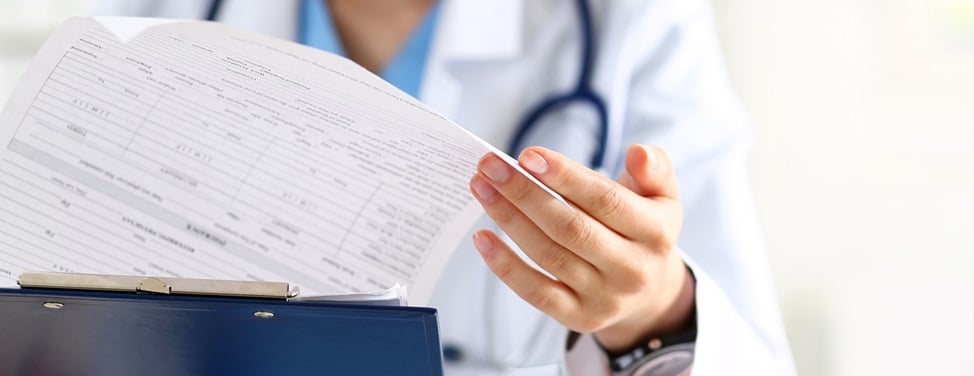
Evaluating Health Information
Health information can be extremely useful, empowering us to make important health decisions. However, health information also can be confusing and overwhelming. Given the wealth of information available through the Internet, journals and other sources, it's important to be able to assess its quality. This can be difficult because health information is constantly changing as a result of new research and because there may be different valid approaches to treating particular conditions.
Although there is no simple rule to determine the validity of online information, there are some useful guides that can be used to assess its credibility and accuracy.
Is the Source Credible?
Ideally, information in a journal or on the Web should have an identifiable source or an author. In considering the credibility of the source, ask yourself whether the particular source you are reading is likely to be fair, objective and lacking in hidden motives.
Take care to examine the credentials of the source to determine whether the author or organization has the required expertise and training to provide the information. If the information is medical, credibility is generally enhanced if it is provided by a medical institution, an entity that brings together medically knowledgeable professionals, or a government health agency.
Knowing that a publication has undergone peer review by a panel of professionals in the field can add to the credibility of the information. If the publisher's or author's contact information is listed in the form of a mailing address or phone number, this also can add to the legitimacy of the information.
An important clue to the identity of the publisher can be found in the Web address:
- .edu A Web address that ends in ".edu" is published by an organization that is associated with an educational institution such as a university.
- .gov An ending of ".gov" signifies that the web page belongs to a governmental organization.
- .org An address ending in ".org" belongs to a nonprofit.
- .com An ending of ".com" belongs to a for-profit company.
To summarize, when assessing credibility, consider the following:
- Who published the information?
- Who are the authors?
- What are their credentials?
- Do the authors have a hidden agenda?
- Is the information peer reviewed?
Is the Information Accurate?
When assessing the accuracy, try to determine whether the information is supported by evidence from scientific studies, other data or expert opinion. If you receive information from a medical journal, note the size and category of the study. Is the information based on a large or small sample? Read the article carefully to see if the authors discuss any limitations or weaknesses of the study.
The most reliable evidence comes from randomized controlled studies. However, other types of studies or the opinions of respected authorities in the field also can lend validity to the information.
If you receive information from a secondary source such as an Internet site or a newspaper article, keep in mind that you are relying on another person's interpretation of the data. Is the information based on evidence from a study, on expert opinion or is it merely the opinion of the writer? Although your local newspaper may provide excellent information on certain topics, it lacks the expertise of a cancer journal or a national organization specializing in the field of cancer.
If you need to make an important medical decision, substantiate the information you receive through the local paper with information from a doctor and other credible sources. Also check to see when the information was published or when the Web page was last updated. This is particularly important in the health care field, where information is constantly changing as new discoveries are made.
To summarize, when assessing accuracy, consider the following:
- Is the information based on scientific evidence?
- Is the information supported by facts?
- Is the original source listed?
- Do other sources back up the information?
- Is the information current?
Red Flags
Information that has no identifiable publisher or author should not be relied on, unless it is backed up by information from other sources that meet the criteria for credibility.
If the purpose of the information is primarily to sell a product, there may be a conflict of interest since the manufacturer may not want to present findings that would discourage you from purchasing the product. If you suspect that the intent is to sell you a product, consider getting additional information from a more neutral source.
At other times, the source may not disclose all of the information or may have a bias that is more subtle and difficult to detect. Even well respected medical journals or websites may have a slight bias, depending on their experience. For example, a journal targeting surgeons may not discuss other valid treatment options such as radiation or chemotherapy. Although the information may be accurate, it may have a slight bias because of its particular perspective.
When reading health information, notice the date of publication. Given that health information is constantly changing as new discoveries are made, it is important to make sure that the information is current. If the information is based on a study done several years ago, you should look for more recent information to ensure that the information is still valid. For example, a website that has not been updated recently or an article that is several years old may not include information on new promising treatments.
Be skeptical of sensationalist claims of a "secret cure" or a "miraculous result" that no one else has heard about and that is not backed by evidence.
Remember to use good judgment about information from forums such as Internet chat rooms and bulletin boards. Keep in mind that the experience of one individual does not necessarily apply to you. Although such forums can provide valuable information, there are very few safeguards in place to ensure the credibility or accuracy of the information. Any individual, regardless of expertise or experience, can dispense advice. Information from such forums should be substantiated by more reliable sources of information.
Also, bad grammar or spelling errors indicate poor quality control and may suggest cause for caution.
To summarize, be skeptical of information when you find these red flags:
- The information is anonymous
- There is a conflict of interest
- The information is one-sided or biased
- The information is outdated
- There is a claim of a miracle or secret cure
- No evidence is cited
- The grammar is poor and words are misspelled
It is important to recognize that the search for information can be confusing, even when you find credible sources of information. At times, even reputable sources provide conflicting information or recommend different treatments. Differences of opinion arise when there is no solid evidence about the best way to treat a particular condition. In these cases, you may want to consult with different practitioners to decide the best course of treatment for you.
In reviewing information, use your judgment, recognizing that evaluating quality is something of an art. Although very few sources will have all the criteria for credibility and accuracy, familiarizing yourself with these criteria can help you sift through information more critically and will provide important cues that will help you differentiate between good quality and poor quality information.
UCSF Health medical specialists have reviewed this information. It is for educational purposes only and is not intended to replace the advice of your doctor or other health care provider. We encourage you to discuss any questions or concerns you may have with your provider.







